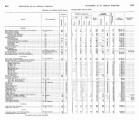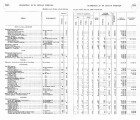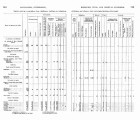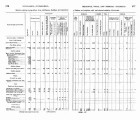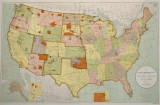| Title |
Annual Report of the Commissioner of Indian Affairs - 1899 (Pt I) |
| Subject |
Indian reservations; Federal government; Indians of North America; Indians of North America--Education; Courts; Allotment of land; Land use; Railroads; Timber; White people--Relations with Indians; Health; Annuities; Horses; Crime; Missionaries; Irrigation; Grazing; Alcohol; Livestock; Natural resources; Education; Employment (Economic theory); Water rights; Treaties; Indigenous peoples--North America |
| Keywords |
Annual Report; Indian Agency; Reservations; Tribal Funds; Allotment; Land Rights; Mining; Fishing Rights; Indian; White Relations; Superintendency; Native Americans |
| Publisher |
Digitized by J. Willard Marriott Library, University of Utah |
| Tribe |
Ute |
| Band |
Uintah |
| Language |
eng |
| Description |
Excerpts concerning Utah from the Annual Report of the Commissioner of Indian Affairs - Courtesy of the University of Wisconsin Digital Collections. The Commissioner of Indian Affairs outlines the sale and leasing of Indian lands, the distribution and transfer of allotments, appropriations made to the various tribes, the history and purposes behind Indian education policy, Indian exhibitions, agreements made with railroad companies, and requests for tribal membership. Agent Knackstedt of Colorado submits a report regarding the Southern Utes' health, educational progress, and agricultural practices. Uintah Ouray Agent H.P. Myton describes perceived aversions to farming practices and the poor quality of buildings at the agency. J.E. Kirk, Superintendent of the Uintah School reports incidences of irregular attendance and challenges to farming on school property. Superintendent Commons of the Ouray School reports a slight increase in attendance and the need for a new irrigation system |
| Type |
Text |
| Coverage |
Uintah and Ouray Indian Reservation (Utah); Utah; Washington (D.C.) |
| Format |
application/pdf |
| Rights |
Digital Image © 2011 America West Center. All Rights Reserved |
| ARK |
ark:/87278/s66x26rs |
| Creator |
Commissioner of Indian Affairs; Jones, William A.; Knackstedt, Louis A.; Myton, H.P.; Kirk, J.E. |
| Date |
1899 |
| Spatial Coverage |
Whiterocks (Utah); Uintah and Ouray Indian Reservation (Utah); Washington (D.C.); Utah |
| Setname |
uaida_main |
| ID |
373133 |
| Reference URL |
https://collections.lib.utah.edu/ark:/87278/s66x26rs |






























































































































































































































